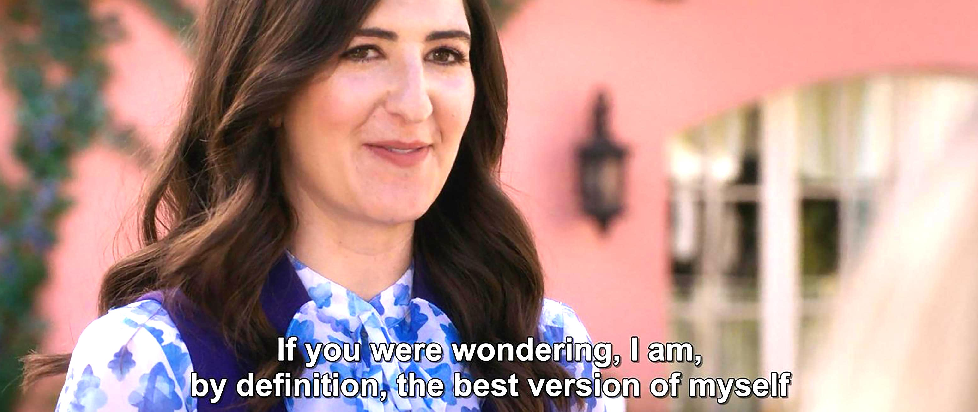
Janet, The Good Place and Morality
I recently took a cross-country trip, and in preparation I sought out a new show to watch on the airplane. After asking around, I landed on The Good Place, Michael Schur’s newest venture. I’m an avid Parks and Rec fan, and had yet to jump into the new comedy based in the afterlife, so I eagerly downloaded all 13 season one episodes. Going in, I expected a light, airy comedy with a strong ensemble and chirpy attitude. What I got was all the above, plus a slew of moral and ethical questions that have nested in my brain since my plane landed. The result is basically Lost meets Parks and Recreation, which is some high praise coming from someone who counts both of those shows in his top 10 of all time. With its first season, The Good Place proves a comedy can be more than wit and whimsy; it can also be an insightful delve into the human condition.
Ethics play a central role in The Good Place. Main character Eleanor, played by Kristen Bell, is a rude, self-centered jerk of a person who finds herself mistakenly in the Good Place after her death. The wider premise, and the source of many of the jokes in the season stem from her desire to become good in order to stay in the Good Place and avoid eternal torture in the Bad Place. She enlists the help of Chidi, an ethics professor, to learn the basic philosophies behind human behavior. Eleanor uses Chidi’s teachings to better herself, but her lessons are put to the ultimate test when confronted with a moral quandary so great that even a terrible person such as herself cannot find a proper solution.
There’s a scene a good way into the first season where Eleanor and Chidi are debating the pros and cons of killing Janet, who is essentially nothing more than a personified supercomputer. Her primary function is that of an all-knowing database, a walking, talking Google. In concept, killing her would be akin to nothing more than wiping your hard drive clean. But because she exists in the form of a human, with roughly human behaviors and characteristics, the moral implications take on an entirely new meaning.
Janet has a failsafe that kicks in whenever someone is about to turn her off that causes her to beg for her life. This appeal to human conscience underlines Janet’s role in the universe of The Good Place, while at the same time delivering some great jokes (I would argue that the sequence one of the best scenes in the season, and is definitely worth checking out even if you don’t watch the entire 13 episodes). It calls to mind the principals of utilitarianism that Chidi versed Eleanor in earlier in the season. Is it morally acceptable to cause one person pain in service of a greater cause? Even though Janet is not human, she (mostly) behaves like one, and appears outwardly human. The waters are further muddied after Janet reboots with the intelligence of an infant, making her murder feel more inhumane. It’s an ethical Rubik’s Cube with no easy answer.
Pop culture has examined the value of artificial life before in films such as I, Robot and Ex Machina, but The Good Place smartly, and refreshingly, layers a lighthearted comedy on top of the typically grim theme. The question of Janet’s humanity is just one example of the moral dilemmas presented by the show, but thanks to an outstanding cast and legitimately hilarious writing, it never feels forced. Season two is currently airing, and I could not be more excited to see where it takes us.





